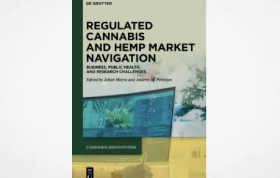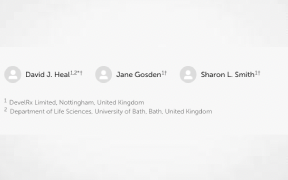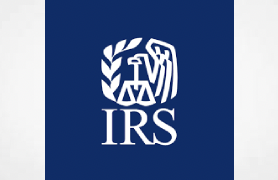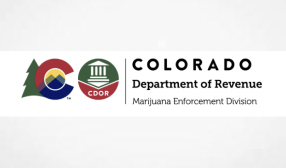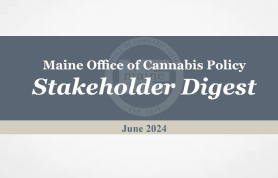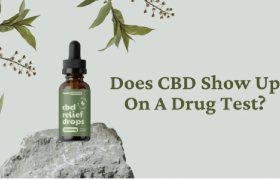The rising popularity of CBD, a non-psychoactive compound from the cannabis plant, has raised a common question: Does CBD show up on a drug test? Drug tests are regularly conducted by employers, sports groups, and law enforcement, making it important for people to know if using CBD can lead to a positive result. In this article, we’ll break down the science of drug tests, discuss the factors influencing CBD detection, and offer guidance on how to manage CBD use in relation to drug testing.
Before we go any further, it’s important to establish the fundamentals. What exactly is CBD, and where does it come from? Getting a grasp of these basics will help us better comprehend its potential effects on drug tests.
What is CBD?
CBD, or cannabidiol, is a natural compound found in the cannabis plant. Unlike THC, the component responsible for the marijuana “high,” CBD doesn’t make you feel stoned. Instead, it interacts with the body’s endocannabinoid system, potentially providing various health benefits such as pain relief, anxiety reduction, improved sleep, and inflammation management. CBD can be extracted from marijuana or hemp plants, but hemp derived CBD is popular for its low THC content, making it legal in many areas. Its non-intoxicating properties have made it a sought-after natural remedy for a wide range of conditions.
Does CBD Show Up On A Drug Tests?
Many people wonder whether CBD use can result in a positive drug test. The answer is not a simple yes or no. It depends on the specific CBD product and the type of drug test being used. Most standard drug tests are primarily designed to detect THC, the compound responsible for the “high” in marijuana, rather than CBD. However, some CBD products can contain tiny traces of THC, which might lead to a positive result on a drug test.
To minimize the risk of testing positive on a drug test, it’s crucial to choose CBD products carefully. Opt for products from reputable sources that provide lab-tested certificates confirming low or no THC content. Generally, broad-spectrum or isolate CBD products are safer options as they contain minimal or zero THC. Additionally, if you are concerned about drug testing, consider discussing your CBD use with your employer or the testing authority to understand their policies and ensure a smooth experience while incorporating CBD into your wellness routine.
What’s the Difference Between CBD and THC?
CBD (cannabidiol) and THC (tetrahydrocannabinol) are two compounds found in cannabis, but they have some key differences. The most significant distinction is that THC is the compound responsible for the “high” associated with marijuana, while CBD does not cause any intoxicating effects. This makes CBD a popular choice for those seeking potential therapeutic benefits without the altered state of mind that THC can produce. Additionally, THC is often subject to legal restrictions due to its psychoactive nature, whereas CBD is generally more widely accepted and available, particularly when derived from hemp with low THC levels. Both compounds interact with the body’s endocannabinoid system, but their effects and applications diverge, making them suitable for different purposes.
Does CBD Contain THC?
CBD should generally contain very little or no THC. In its pure form, CBD doesn’t have the psychoactive effects associated with THC. However, it’s essential to be cautious about the source of CBD products. Reputable manufacturers provide lab test results, ensuring that their CBD products are either THC-free or contain only trace amounts within legal limits, typically less than 0.3%. To be safe, always read product labels and do your research to ensure the CBD you’re using doesn’t have a significant THC presence, especially if you want to avoid any psychoactive effects.
What are the different types of CBD?
When it comes to CBD (cannabidiol), there are three primary types to consider: full-spectrum, broad-spectrum, and CBD isolate.
Full-Spectrum CBD: This type contains everything that’s naturally found in the cannabis plant, like CBD, a bit of THC (usually less than 0.3%), and other helpful compounds like terpenes and essential oils. People like it because they believe these compounds work together, creating an “entourage effect” that might make it more effective. But if you want to avoid any THC, even a tiny bit, this might not be your best choice.
Broad-Spectrum CBD: This is a lot like full-spectrum, but it’s had all the THC taken out. So you get those helpful compounds without worrying about THC, which some people don’t want.
CBD Isolate: This is pure CBD, and nothing else from the cannabis plant. There’s no THC or other compounds. It’s perfect if you want CBD without any chance of THC, and it doesn’t have much taste or smell, so it’s easy to use.
Which one you pick depends on what you’re looking for. Full-spectrum and broad-spectrum might have more potential benefits because of all the compounds, while CBD isolate is pure and simple. Just make sure to check the labels and lab tests to be sure you’re getting the kind of CBD that suits your needs.
Common Drug Testing Methods
Drug testing has come a long way, offering different ways to find out if someone has used drugs. The most common methods include:
- Urine Testing: This is the most popular method. It’s easy and affordable. It can detect a wide range of substances, like THC (the part of weed that makes you high), opioids, and amphetamines. But it’s best at finding recent drug use, not stuff you did weeks ago.
- Blood Testing: Blood tests are super accurate and quick, but they’re not used as much because they need a needle and can cost more. They’re mainly for situations where they need to know if you used drugs recently, like after an accident or if you got pulled over for driving under the influence.
- Hair Testing: This method looks at your hair and can show drug use from a while back, even up to 90 days. They use this when they need to know your drug history, but it might not catch really recent drug use.
- Saliva Testing: Saliva tests are getting more popular. They’re easy and not invasive. They’re good at catching recent drug use, like THC, cocaine, and amphetamines.
Each method has its pros and cons. Which one they use depends on what they’re looking for, how long ago you used drugs, and practical stuff like cost and convenience. Knowing these drug testing methods is important if you might have to take a drug test for work, sports, or legal reasons.
Tips to Reducing the Risk of Failing a Drug Test
Failing a drug test can lead to serious consequences in different areas of life, such as work or legal matters. To avoid this, there are practical steps you can take.
Stay Informed: Be aware of the substances you consume and their potential impact on drug tests.
Choose Trusted CBD Products: Select Best CBD products from trusted sources to ensure they are safe and of high quality, providing you with peace of mind.
Stay Hydrated: Drinking plenty of water can help dilute urine concentration, potentially reducing the chance of a positive test result.
Maintain a Healthy Lifestyle: A healthy diet and regular exercise can speed up your body’s natural processes, which may help eliminate substances more quickly.
Understand the Test: Familiarize yourself with the specific drug test you will take, as testing methods and substances detected can vary.
Seek Legal Advice: If you have concerns or face legal implications, consider consulting with an attorney to better navigate your situation and protect your rights.
FAQ’s
How long will CBD stay in your urine?
The duration CBD stays in your urine varies but is generally up to 3 days for occasional use, 5-7 days for moderate use, and 10-15 days for heavy use.
Can you test positive for drugs if you take CBD?
It is possible to test positive for drugs if you take CBD, as some CBD products may contain trace amounts of THC, which can show up on drug tests. To avoid this, choose high-quality CBD products with minimal THC content.
Is CBD legal federally?
Yes, CBD is legal federally in the United States as long as it contains less than 0.3% THC, thanks to the 2018 Farm Bill. However, state laws regarding CBD may vary, so it’s essential to check your state’s specific regulations.
How can I flush CBD out of my system?
CBD leaves your system naturally over time; there’s no guaranteed way to speed up removal. Stay hydrated and maintain a healthy lifestyle. Consult a healthcare professional if you have concerns.
